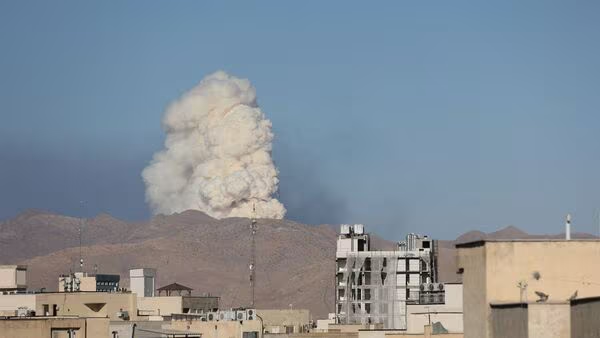President Donald Trump announced early Saturday that U.S. forces have carried out coordinated airstrikes on Iran’s nuclear enrichment sites at Fordow, Natanz, and Esfahan, marking a direct American role in Israel’s campaign to halt Tehran’s nuclear program. He made the declaration on his Truth Social platform, stating, “We have completed our very successful attack on the three Nuclear sites in Iran, including Fordow, Natanz, and Esfahan. All planes are now outside of Iran air space. A full payload of bombs was dropped on the primary site, Fordow. All planes are safely on their way home. NOW IS THE TIME FOR PEACE!” people.com
Scope and Scale of the Strikes
According to Trump’s post and a subsequent televised address from the White House Situation Room, the operation involved U.S. stealth bombers equipped with Massive Ordnance Penetrators to target deep underground facilities. He described the mission as “a spectacular military success,” and warned that additional targets remain if Iran fails to pursue peace. International observers note that Fordow sits nearly 300 feet beneath a mountain and houses over two thousand advanced centrifuges theguardian.comft.com.
U.S. officials told Axios that the strikes aimed to dismantle Iran’s near–weapons grade enrichment activities, which intelligence agencies assessed could produce a bomb in a matter of weeks. Iran’s Atomic Energy Organization later confirmed damage to its Fordow, Natanz, and Esfahan facilities but claimed no significant radiation leaks or harm to nearby communities apnews.com.
Global and Regional Reactions
Israeli Prime Minister Benjamin Netanyahu praised the strikes as “historic” and thanked President Trump for acting where others could not. He characterized the move as a decisive blow against the “world’s number one state sponsor of terror” theguardian.com.
Iranian Foreign Minister Abbas Araghchi condemned the attack as “outrageous,” warning it “will have everlasting consequences” and vowing that Tehran “reserves all options” to defend itself. He called for an emergency session of the United Nations Security Council to address what Iran deems illegal use of force apnews.com.
United Nations Secretary-General António Guterres described the strikes as a “dangerous escalation” and urged all parties to return to diplomacy to avoid a wider conflict en.wikipedia.org.
U.S. Political Response
Within Washington, the reaction split largely along party lines. Senate Republicans, led by Lindsey Graham, lauded the decision as necessary to prevent a nuclear-armed Iran and secure American and Israeli safety. Graham called it “the right call at the right time.” In contrast, House and Senate Democrats, such as Hakeem Jeffries and Jim Himes, criticized the administration for bypassing Congress and warned of constitutional overreach. They stressed that any use of military force requires legislative authorization under the War Powers Resolution en.wikipedia.org.
Military Details and Uncertainties
Defense analysts note that deploying bunker-buster bombs against deeply buried facilities carries technical risks. The 30 000-pound Massive Ordnance Penetrator can penetrate over 200 feet of reinforced concrete, but the precise composition of Fordow’s defenses remains uncertain. While the operation reportedly contained the strike zone to limit environmental impact, experts warn that released uranium hexafluoride could form toxic byproducts if not fully contained ft.com.
Short Analysis
This episode illustrates the tense balance between military action and diplomatic restraint. Trump’s decision breaks with his earlier emphasis on limiting U.S. overseas engagements, and it thrusts America into a broader Middle East war. While the strikes may set back Iran’s nuclear progress, they also risk triggering retaliatory attacks on U.S. forces or allies and destabilizing global oil markets. Moving forward, policymakers must weigh the immediate security gains against the longer-term danger of regional escalation and the challenge of restoring a path to negotiation.

